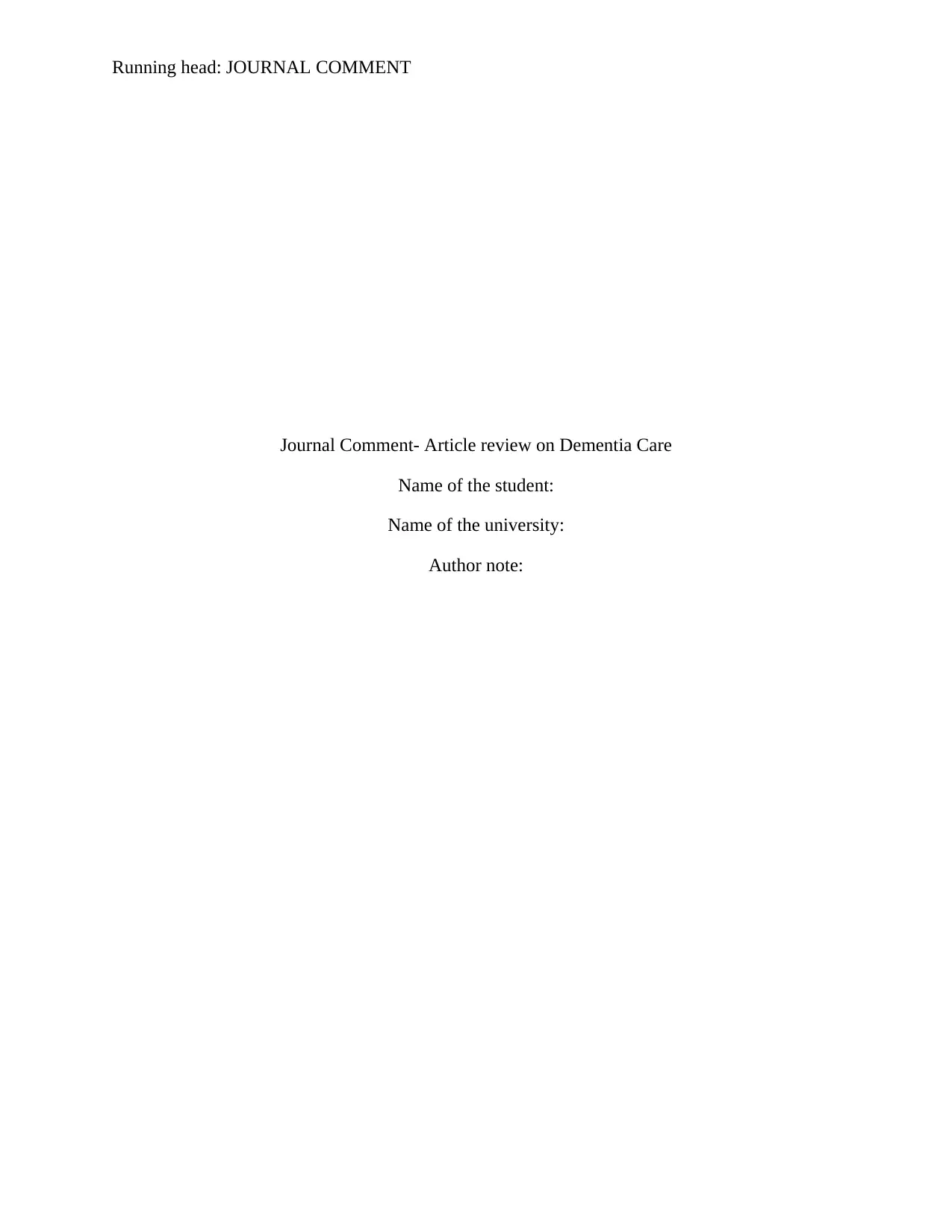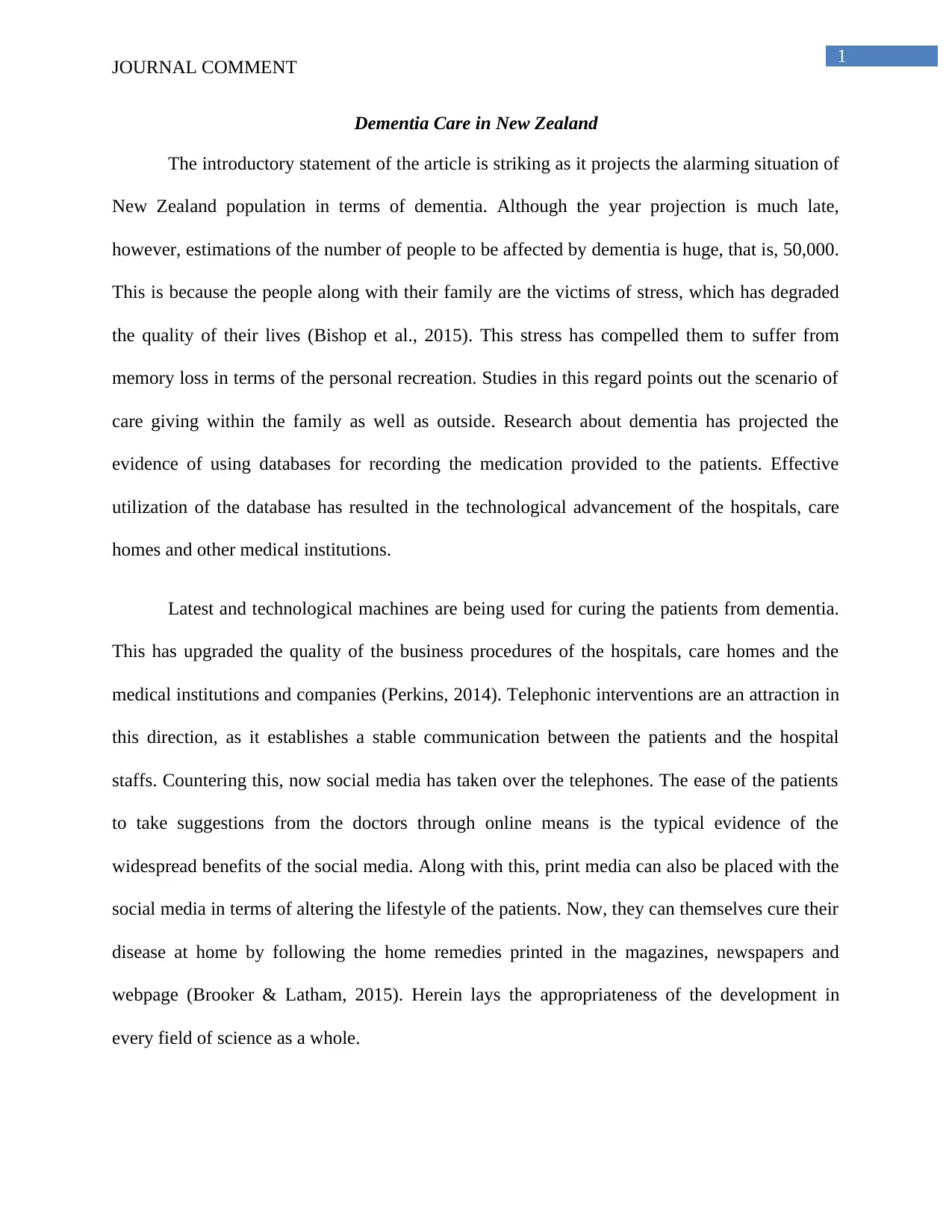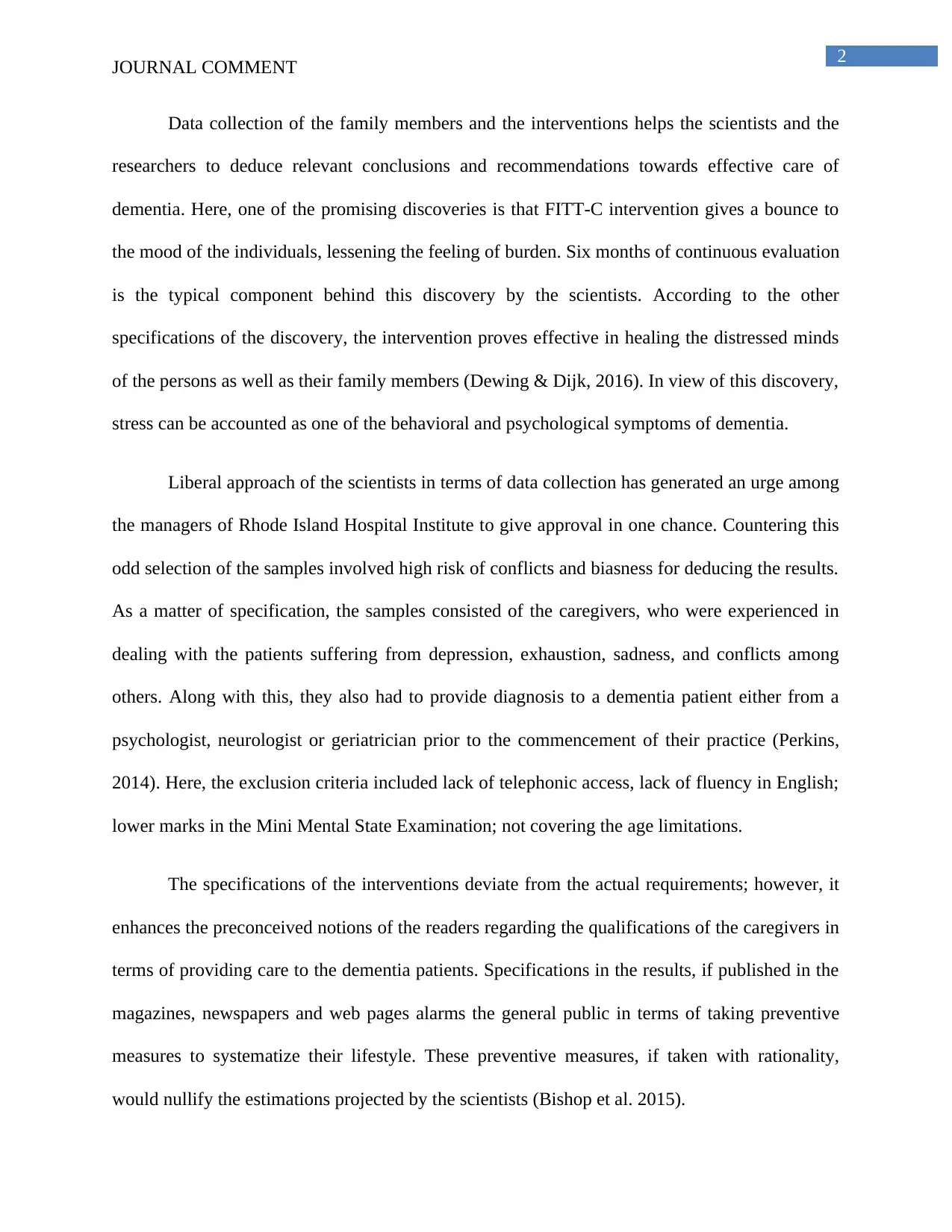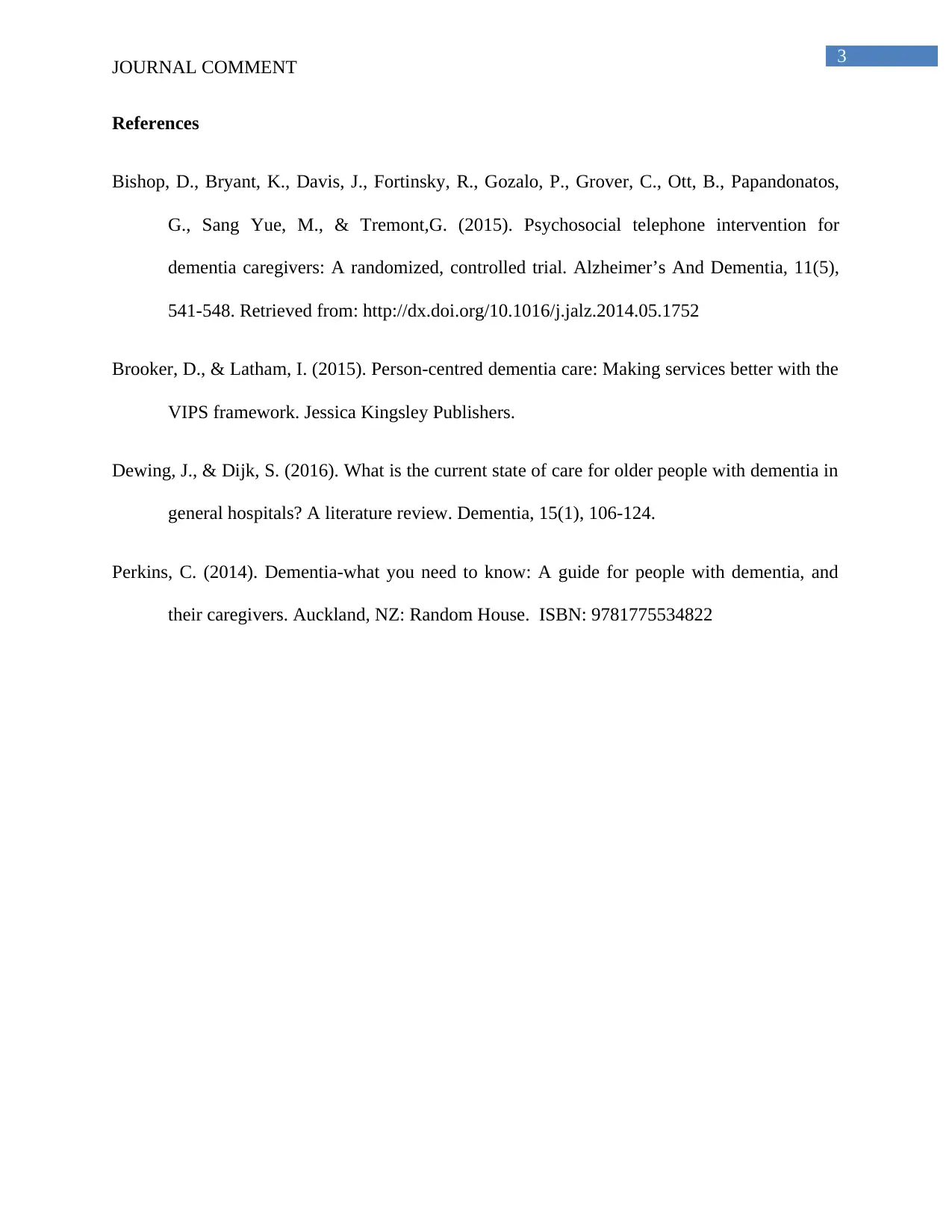Article Review: Dementia Care and Intervention Strategies
VerifiedAdded on 2020/05/11
|4
|916
|57
Journal and Reflective Writing
AI Summary
This journal comment provides an analysis of an article focusing on dementia care, particularly in the context of New Zealand. The review highlights the alarming projections regarding the number of people expected to be affected by dementia and the resulting stress on patients and their families. The comment examines various aspects of dementia care, including the use of databases for medication, technological advancements, and the role of telephonic and social media interventions. It also discusses the impact of the FITT-C intervention on patients' moods and the importance of data collection for research. The analysis also addresses the limitations of the study, specifically the selection of samples, and how preventive measures can help mitigate the projected estimations. The comment references several studies and publications to support its points, providing a comprehensive overview of the challenges and strategies in dementia care.
1 out of 4






![[object Object]](/_next/static/media/star-bottom.7253800d.svg)